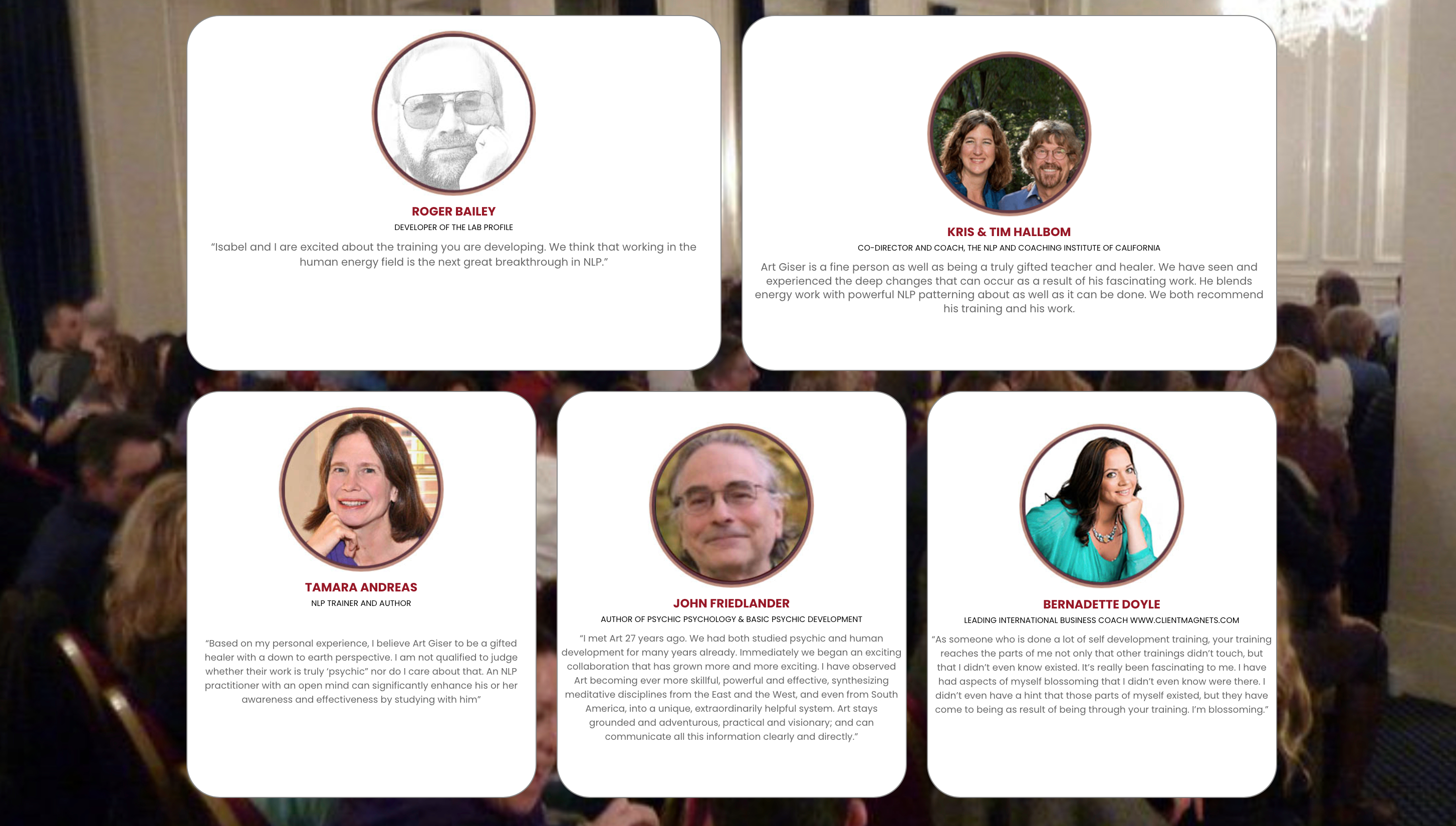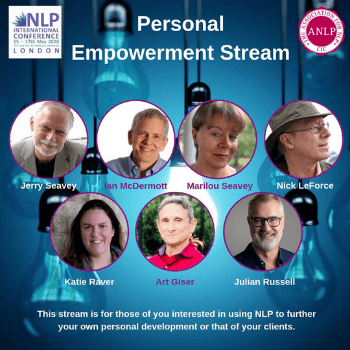Are you tired of the same old blocks and limitations in your life?
Clear Blocks To Living a Miraculous Life -- Now
Without Effort or Having to Analyze Yourself
Click and watch the brief video below and discover now,
how you can easily transform your life
It is our gift to you
EASILY and rapidly clear unconscious, energetic, and spiritual blocks and programming.
Unleash more of your full potential

Get off the "hamster wheel "of personal development
Endlessly analyzing yourself and your childhood, thinking you have to do it "right", try harder, and figure it all out logically.
Are you ready to let go of what is blocking you and open up to more of your
full potential to live a more miraculous life?"
A life that is more miraculous, magical, flowing, and synchronistic.

Some of the benefits of the BlockBuster Mini Program
Strengthen Guidance from Your Spirit and Inner Wisdom
Make decisions that are in alignment with your true life purposes
Experience increased clarity and intuition.
Foster a deeper connection
Clear Blocks To Living a Miraculous Life Without Effort or Analysis
Achieve personal and spiritual growth without the need for introspection or self-analysis.
Experience a smoother life journey without constantly facing internal barriers.
Save time and energy by not having to delve deep into personal issues.
Easily and Rapidly Clear Unconscious, Energetic, and Spiritual Blocks
Experience faster personal transformation.
Heal deep-rooted issues that might have been hindering progress.
More clarity leading to better decision-making.
Get Off the "Hamster Wheel" of Personal Development
Avoid the trap of over-analyzing and overthinking.
Experience genuine growth without the constant feeling of being stuck.
Enjoy a more organic and natural progression in personal development.
Align Your Spirit with Your Deep Inner Human Wisdom (Miraculous Self)
Be guided, nurtured, and supported by your Miraculous Self
Make decisions that resonate with both your inner wisdom and spiritual guidance.
Deeper connection with oneself and the universe.
Transformation is Easy, Fun, and Immediate
Enjoy the process of personal growth without it feeling like a chore.
See immediate results, leading to increased motivation
Incorporate the program into daily life without it feeling burdensome.
Clear and Heal Unconscious & Energetic Programming
Break free from societal, ancestral, and familial conditioning.
Discover who you really are
More authenticity and freedom in thought and action.

A message from Art Giser:
Do you ever feel like there is an invisible wall blocking your from opening more of your full potential?
I felt that way 40 years ago.
I explored many different systems in my quest for more success, happiness, health, and fulfillment.
Now I share what I learned that transformed my life.
Join thousands of people all over the world who have used Energetic NLP™ to clear and heal their blocks and to open more of their full potential to live a more successful and happy life.
Wishing you a miraculous life,
Art
Tell me more
What will I receive?
A powerful video each day for days.
How soon will I see and feel results
As soon as you watch the first video
What is my Miraculous Self?
Your Miraculous Self is a concept unique to Energetic NLP
It is when your spirit with its vast knowledge and abilities becomes aligned with your deep inner human wisdom.
You will create your Miraculous Self by listening to the video 1
Why do I want a Miraculous Self?
The world of energy and spirit is dynamic and complex. Our conscious minds are not capable of fully comprehending it. '
You are always stuck in the limitations our conscious understanding. Always stuck on the hamster wheel of analyzing yourself.
In Energetic NLP you get out of constantly analyzing yourself and trying to figure it all out.
Instead, you put your Miraculous Self in charge, and let it do its magic and transform your life. It makes it so much easier and more enjoyable, and your success and happiness skyrocket.
Is it hard, and does it take a lot of time?
It's easy and fun.
Each video is about 30 minutes

Your transformation starts immediately
and grows and grows each day.
BlockBuster Free Rapid Transformation Program

Sign Up For This FREE
Program And in Only 4-Days
Clear BlocksTo Living a Miraculous life NOW!!
BlockBusting In 4 Days is a Free On-Demand Video Program
These simple, powerful, and rapid guided Energetic NLP processes will magically heal and dissolve blocks to your success and happiness.
Transformation can be
easy and fun.

During this Energetic NLP Energy Spa™ program you will:
Clear and heal unconscious programming
Clear and heal energetic programming (ancestral, societal, familial)
Free yourself from the limitations created by hidden spiritual blocks and “spiritual contracts" using a unique Energetic NLP process
Strengthen the guidance you receive from your spirit and inner wisdom
Allow your inner wisdom and spirit to propel you to a more fulfilling life
Learn the essential components to leading a more miraculous life
Below to Hear Carrie Share Her Experience In The BlockBuser Program
Led by Art Giser
The Creator of Energetic NLP

What The Experts Say About Energetic NLP and Art Giser



Video 1: Create Your Miraculous Self

Video 2: Clear and Heal Blocks

Video 3: Empowerment

Video 4: Turbocharging
Just a Few of the Publications, Conferences and Podcasts That Have Featured Art

















Always see a licensed medical or psychological professional for physical, mental, or emotional issues.
Facebook Disclaimer Notice: This site is not part of the Facebook website or Facebook Inc. Additionally, this site is NOT endorsed by Facebook in any way. Facebook is a trademark of FACEBOOK,
YouTube Disclaimer Notice: This site is not part of the YouTube website or YouTube Inc. Additionally, this site is NOT endorsed by YouTube in any way. YouTube is a trademark of YouTube, Inc. Inc.
GDRP and CCPA Terms
I confirm that I am at least 16 years of age or older
I have read and accept any EULA, Terms and Conditions, Acceptable Use Policy, and/or Data Processing Addendum which has been provided to me in connection with the software, products and/or services.
I have been fully informed and consent to the collection and use of my personal data for any purpose in connection with the software, products and/or services.
I understand that certain data, including personal data, must be collected or processed in order for you to provide any products or services I have requested or contracted for. I understand that in some cases it may be required to use cookies or similar tracking to provide those products or services..
I understand that I have the right to request access annually to any personal data you have obtained or collected regarding me. You have agreed to provide me with a record of my personal data in a readable format.
I also understand that I can revoke my consent and that I have the right to be forgotten. If I revoke my consent you will stop collecting or processing my personal data. I understand that if I revoke my consent, you may be unable to provide contracted products or services to me, and I can not hold you responsible for that.
Likewise, if I properly request to be forgotten, you will delete the data you have for me, or make it inaccessible. I also understand that if there is a dispute regarding my personal data, I can contact someone who is responsible for handling data-related concerns. If we are unable to resolve any issue, you will provide an independent service to arbitrate a resolution. If I have any questions regarding my rights or privacy, I can contact the email address provided.